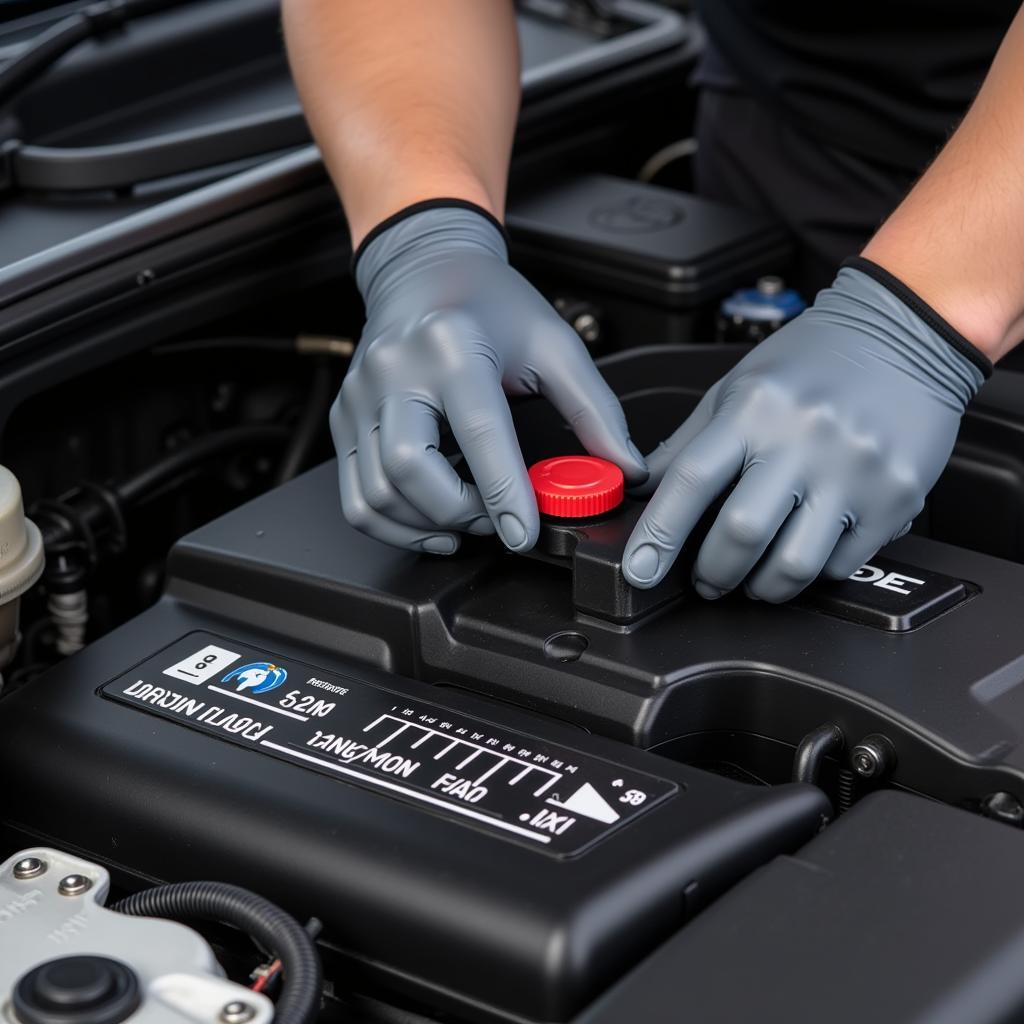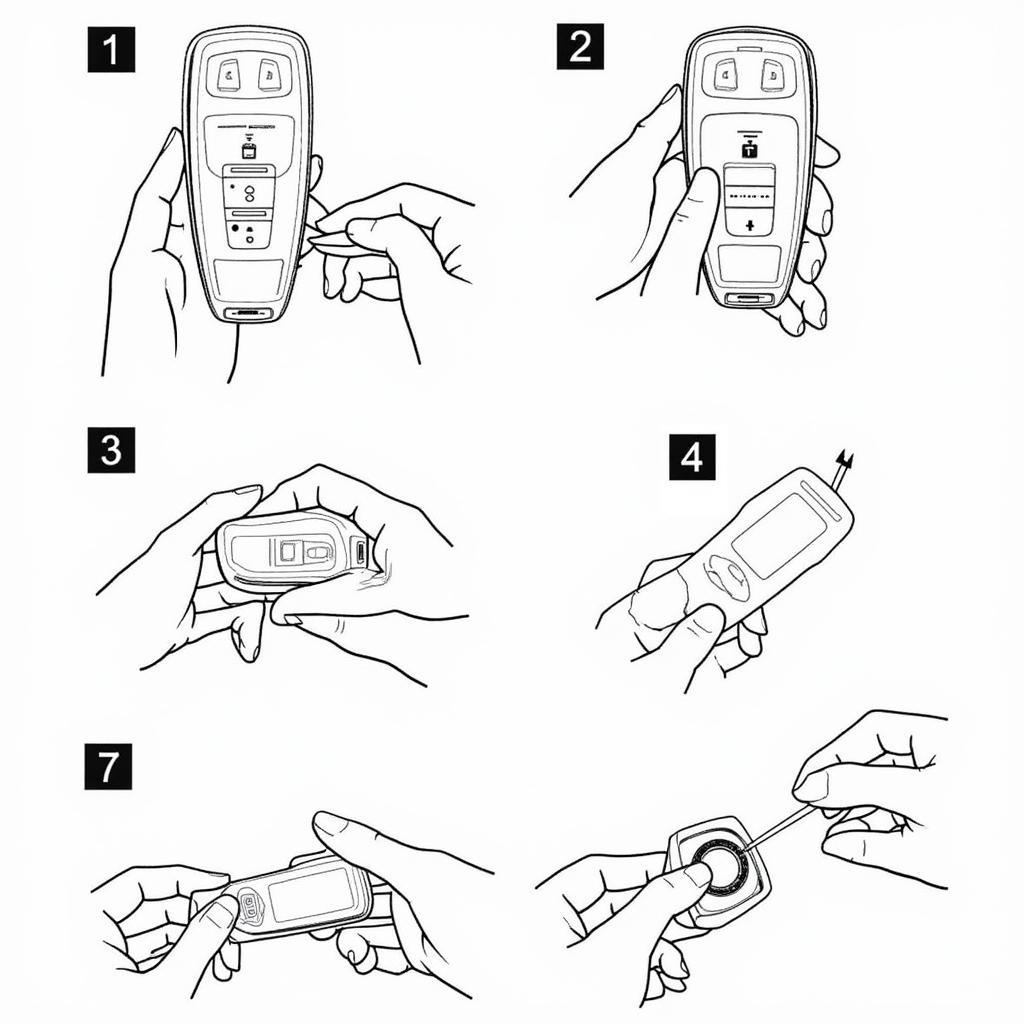Seeing the brake warning light illuminate on your BMW 1 Series dashboard can be unsettling. It’s a clear sign that something needs attention, but it doesn’t necessarily mean a trip to the mechanic is in your immediate future. This article will guide you through the common reasons why your BMW 1 Series brake warning light might be on and provide potential solutions to get you back on the road safely.
Understanding Your BMW’s Brake System
Before diving into the possible causes, it’s helpful to understand the basics of your BMW 1 Series braking system. It’s a sophisticated network of components working together to ensure safe and efficient stopping power. Key elements include:
- Brake Fluid: This hydraulic fluid transmits force from the brake pedal to the brake calipers, activating the braking mechanism.
- Brake Pads and Rotors: When you apply the brakes, the pads press against the rotors, creating friction that slows the vehicle down.
- Brake Calipers: These house the brake pads and contain pistons that push the pads against the rotors.
- Sensors: Your BMW 1 Series has various sensors that monitor the brake system’s health, including brake fluid level sensors and brake pad wear sensors.
Common Causes of a BMW 1 Series Brake Warning Light
Now, let’s explore the most frequent culprits behind that glowing brake warning light on your dashboard:
1. Low Brake Fluid Level
This is one of the most common and easily resolvable reasons.
What it means: Your brake system relies on adequate brake fluid to function correctly. A low fluid level could indicate a leak or that your brake pads are excessively worn, requiring more fluid to operate effectively.
What to do: Carefully check your brake fluid reservoir, usually located near the firewall on the driver’s side. If the fluid level is low, add the recommended brake fluid for your BMW 1 Series, but don’t stop there. Have your car inspected for leaks by a qualified mechanic to address the root cause.
 Checking Brake Fluid Level
Checking Brake Fluid Level
2. Worn Brake Pads
Brake pads are designed to wear down over time.
What it means: Thin brake pads compromise your car’s stopping power, increasing stopping distance and potentially leading to costly damage to the brake rotors.
What to do: If you suspect your brake pads are nearing the end of their lifespan, it’s crucial to have them inspected and replaced by a qualified mechanic as soon as possible.
3. Faulty Brake Pad Wear Sensor
Modern BMWs are equipped with brake pad wear sensors.
What it means: These sensors are designed to trigger the brake warning light when the brake pads wear down to a certain level, alerting you to the need for replacement.
What to do: While a faulty sensor is possible, it’s best to rule out worn brake pads first. If the pads are indeed worn, the sensors will need to be replaced along with them.
4. ABS Issue
Your BMW 1 Series has an Anti-lock Braking System (ABS) for optimal braking performance, especially in slippery conditions.
What it means: A separate warning light usually indicates an ABS issue, but in some cases, it might trigger the brake warning light as well. This could signify a problem with the ABS module, wheel speed sensors, or other related components.
What to do: Given the complexity of the ABS system, it’s best to have this diagnosed and repaired by a qualified BMW technician.
Can I Still Drive My BMW 1 Series with the Brake Warning Light On?
While the severity of the issue dictates the course of action, it’s never advisable to ignore a brake warning light. Driving with compromised brakes puts you and others at risk.
“Ignoring a brake warning light is like ignoring a flashing ‘check engine’ light in an airplane – potentially disastrous,” says Jake Carter, a veteran automotive engineer with over 20 years of experience.
If you must drive a short distance to a safe location or a repair shop, do so with extreme caution:
- Reduce Speed: Drive slowly and defensively.
- Increase Following Distance: Leave extra space between your vehicle and the one in front.
- Avoid Heavy Braking: Anticipate stops and brake gently to minimize stress on the braking system.
Conclusion
Addressing the brake warning light on your BMW 1 Series promptly ensures your safety and prevents potentially costly repairs down the line. While some causes, like low brake fluid, might seem straightforward, it’s always best to consult a qualified mechanic for diagnosis and repair. Regular maintenance, including timely brake pad replacements and brake fluid flushes, goes a long way in preventing brake issues and keeping your BMW 1 Series running smoothly.

